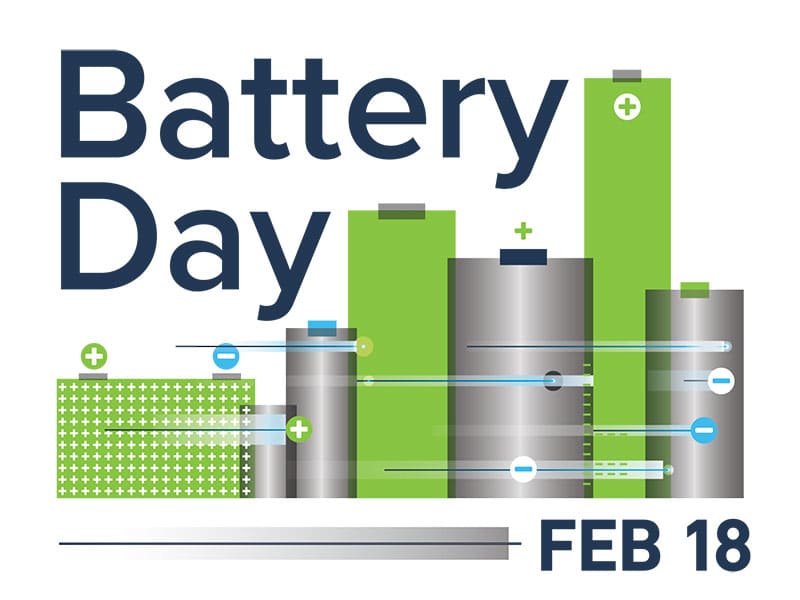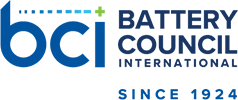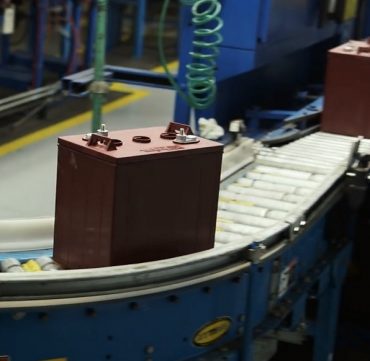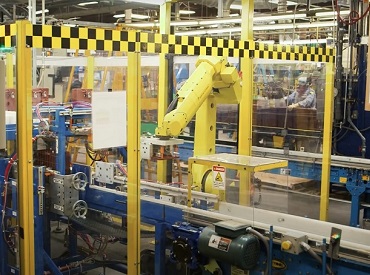
From Keeping Workers on the Job at Home and in the Workplace, to Aiding Vaccine Distribution, Sustainable Lead Batteries are Poised to Help “Build Back Better”
WASHINGTON, February 16 – When the pandemic hit last year, the U.S. lead battery industry was recognized as an essential industry. Lead batteries have since played a critical role in keeping our country safe and productive. On February 18 – National Battery Day – we celebrate lead batteries’ continued resilience and essentiality to help the nation “Build Back Better.”
Lead batteries have been critical in aiding distribution of the COVID-19 vaccine. They touch nearly every aspect of logistics, from forklifts in the warehouse (lead batteries provide 90% of the motive power demand for forklift trucks), to ground vehicles at airports, and the refrigerated trucks and mobile storage units that ensure vials are stored at the proper temperature.
Roger Miksad, executive vice president of the North American trade association, Battery Council International (BCI), emphasized that when schools, restaurants and businesses faced mandates to close their doors, the lead battery industry continued its essential work building the batteries needed to enable others to work and learn remotely.
“National Battery Day is an occasion to honor the work of Battery Council International member companies whose products demonstrate how critical batteries are to society, and not just during a pandemic.” He cited more examples.
“Batteries are on the front lines with first responders, powering the emergency vehicles to transport patients. They provide the backup power to rapidly bridge the gap between a failed power source and generators. And, with so many Americans shopping from home, batteries are essential to fulfill online orders, moving millions of packages and pallets of goods.”
Lead batteries are also enabling the ability to work and learn remotely. A $1 trillion communications infrastructure of data centers, 5G and telecommunications rely on lead batteries, the dominant battery chemistry in this sector.
Now, as the country slowly eases into economic recovery, lead batteries are positioned to help “build back better” and greener with sustainable energy storage, said Miksad.
“Lead batteries will help strengthen the nation’s infrastructure in the areas of national security, transportation, communications and climate mitigation. Market demand is robust with an expected 6% CAGR through 2030,” he explained. “The industry’s domestic and circular manufacturing and distribution network, along with a skilled workforce, will help the country get back on track.”
Lead batteries are the most sustainable battery chemistry on the market. They have a 99% U.S. recycling rate, and a typical new lead battery contains over 80% recycled material. This employs an entire sector of lead battery recycling companies, dramatically reducing landfill waste as well as the need for raw mineral mining.
Miksad also referenced President Biden’s recent remark that “global leadership in battery technology is ‘up for grabs.’” Miksad said the lead battery industry is ready.
“Our industry will help answer the challenge to assert U.S. leadership in energy storage.” He added that the industry is committed to meeting future market needs by investing heavily in research and development, both through private industry efforts as well as partnerships with the National Laboratory system.
Miksad added that beginning in March, BCI and the Essential Energy Everyday campaign will host a series of webinars to further inform policymakers on key topics. Experts will discuss infrastructure, sustainability, the domestic supply chain and innovation. Details will be announced next month.
Learn More at Essential Energy Everyday
Essential Energy Everyday exists to increase awareness of the critical importance of lead batteries in powering our daily lives. It encourages continued investment in sustainable lead battery technology to store and provide energy on demand. The initiative is supported by the global trade association that represents the lead battery and recycling industries, Battery Council International.
About Battery Council International
Battery Council International is the North American trade association representing the lead-based battery manufacturing, supply, recycling and distribution companies. For more information, visit www.batterycouncil.org.






